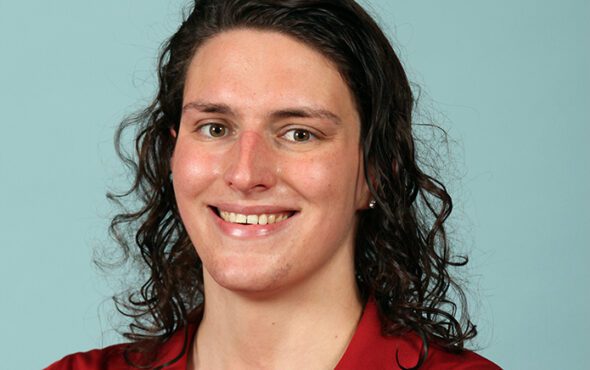
Trans swimmer Lia Thomas has opened up about the harsh critics regarding trans women competing in sports.
Over the last year, the former University of Pennsylvania athlete has earned monumental achievements within the collegiate sports world and the LGBTQ+ community.
Back in March, Thomas became the first out transgender athlete to win a National Collegiate Athletic Association (NCAA) swimming championship.
A few months before the groundbreaking win, the young athlete earned the fastest times in the 200 and 500-yard freestyle during the Zippy Invitational.
Unfortunately, alongside her massive wins, Thomas has also become the topic of debate among those questioning trans participation in sport.
Thomas’ achievements have also been used as an inaccurate example in conservative politicians’ attacks on trans inclusion within sports across the United States.
In a recent interview with ABC News and ESPN, the NCAA champion opened up about the harmful criticism she received.
“I knew there would be scrutiny against me if I competed as a woman and I was prepared for that, but I also don’t need anyone’s permission to be myself and to do the sport that I love,” she said.
Elsewhere in the interview, Thomas opened up about her earlier fears of coming out and the depression she faced over her swim career potentially ending if she transitioned.
“That’s part of what kept me from transitioning for so long,” she explained. “The thing is, I wasn’t sure if I could continue swimming and doing the sport that I love.”
Thomas went on to say that after she underwent gender-affirming care, she changed both mentally and physically.
“I was feeling a lot better mentally, I was less depressed, and I lost muscle mass. I became a lot weaker and a lot slower in the water,” she said.
When asked about the harmful notion that she’s enjoyed “a competitive advantage”, Thomas effortlessly shut down the critics.
“Trans people don’t transition for athletics. We transition to be happy and authentic and our true selves. Transition to get an advantage is not something that ever factors into our decisions,” she explained.
“Trans women competing in women’s sports does not threaten women’s sports as a whole. Trans women are a very small minority of all athletes.
“The NCAA rules regarding trans women competing in women’s sports have been around for 10-plus years. And we haven’t seen any massive waves of trans women dominating.”
Towards the end of the interview, Thomas revealed that she would be attending law school to study civil rights law – which is partly due to the ongoing political attacks against the trans community.
“Having seen such hateful attacks on trans rights through legislation, fighting for trans rights and trans equality is something that I’ve become much more passionate about and want to pursue,” she said.



